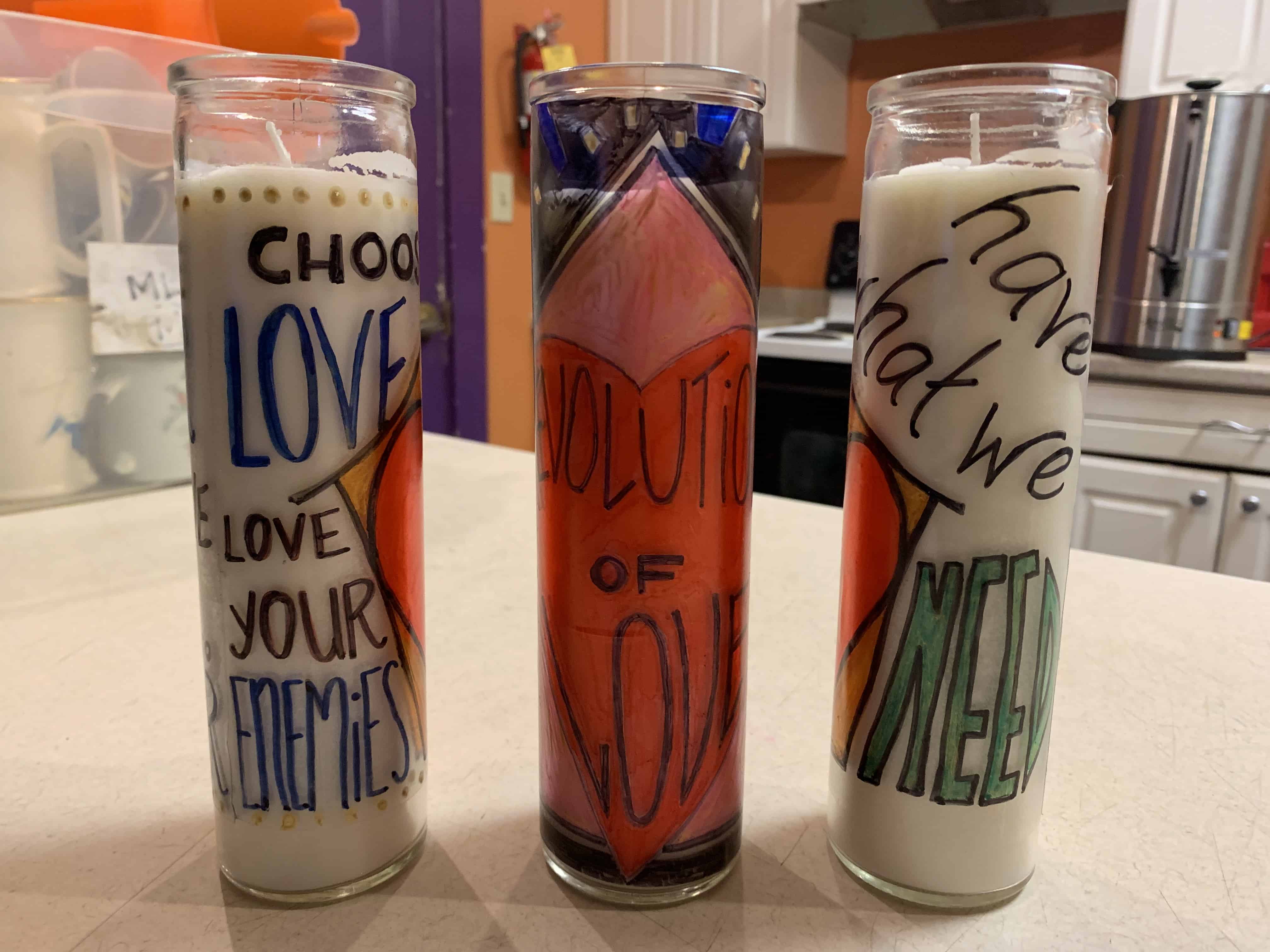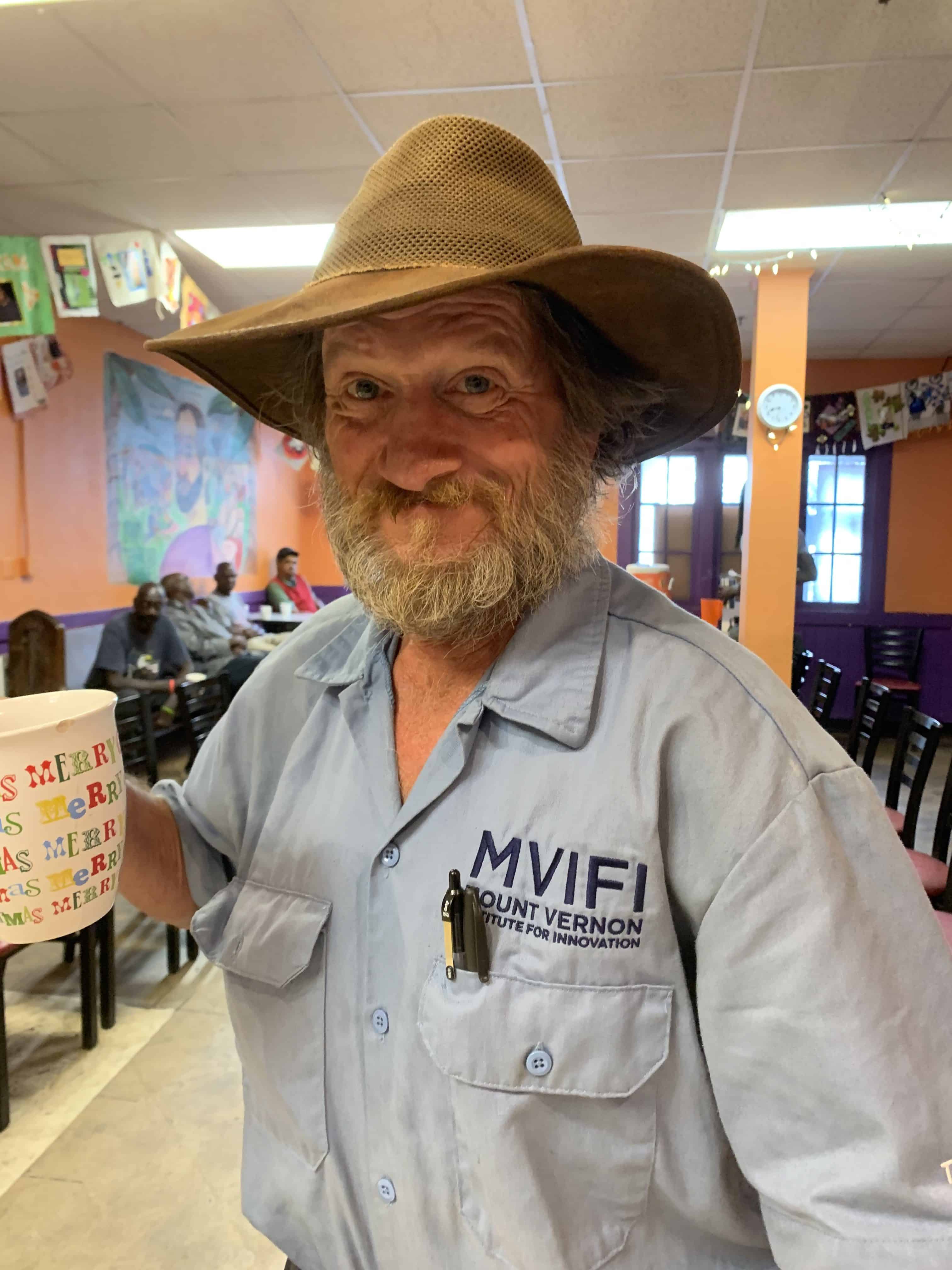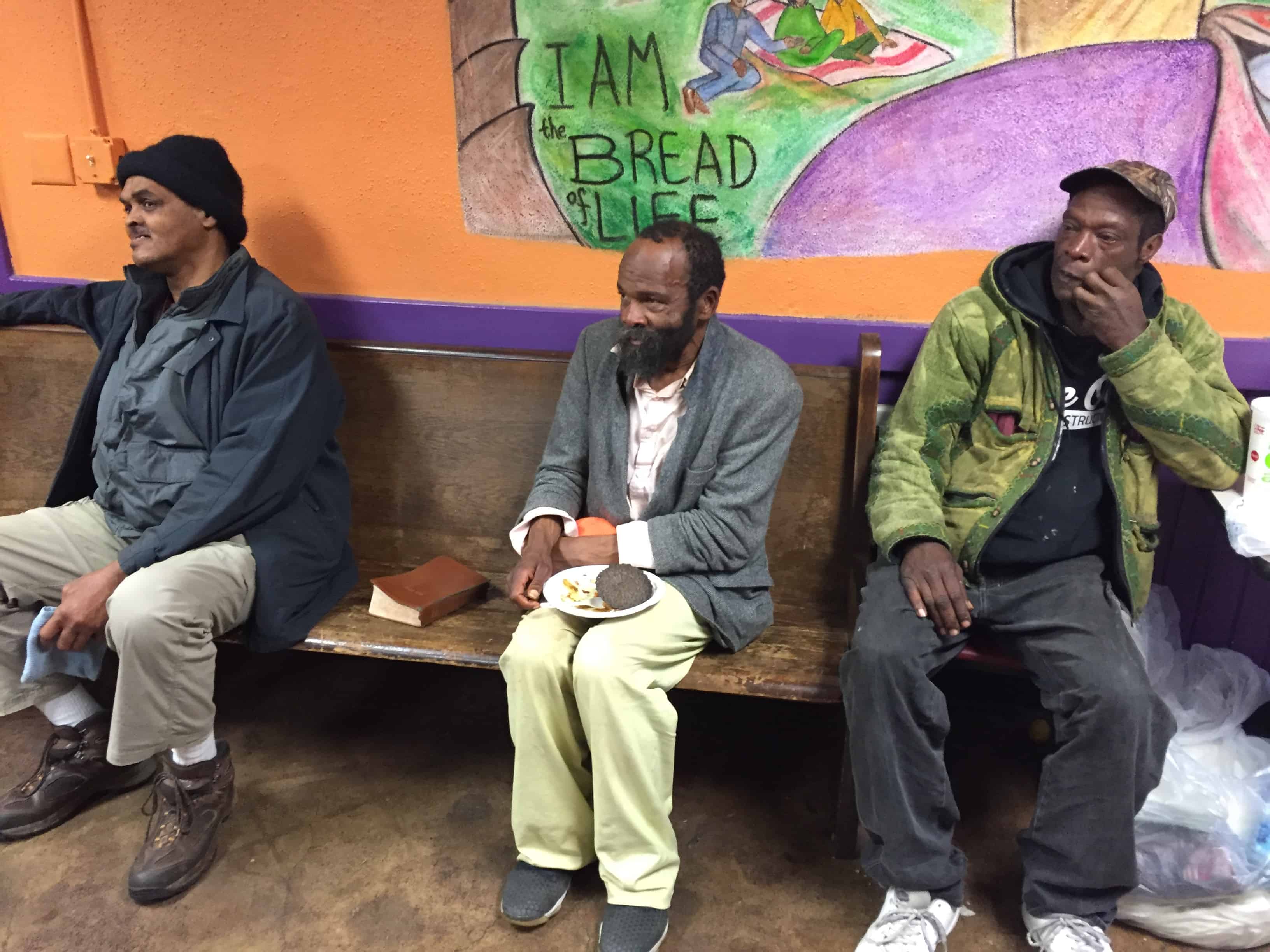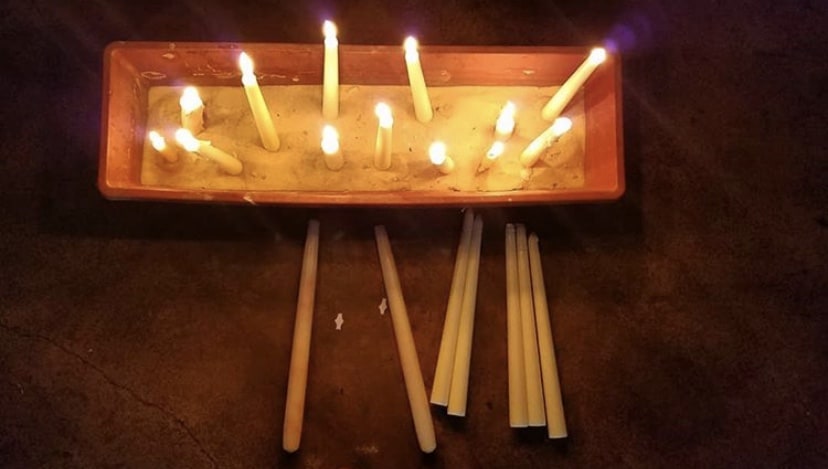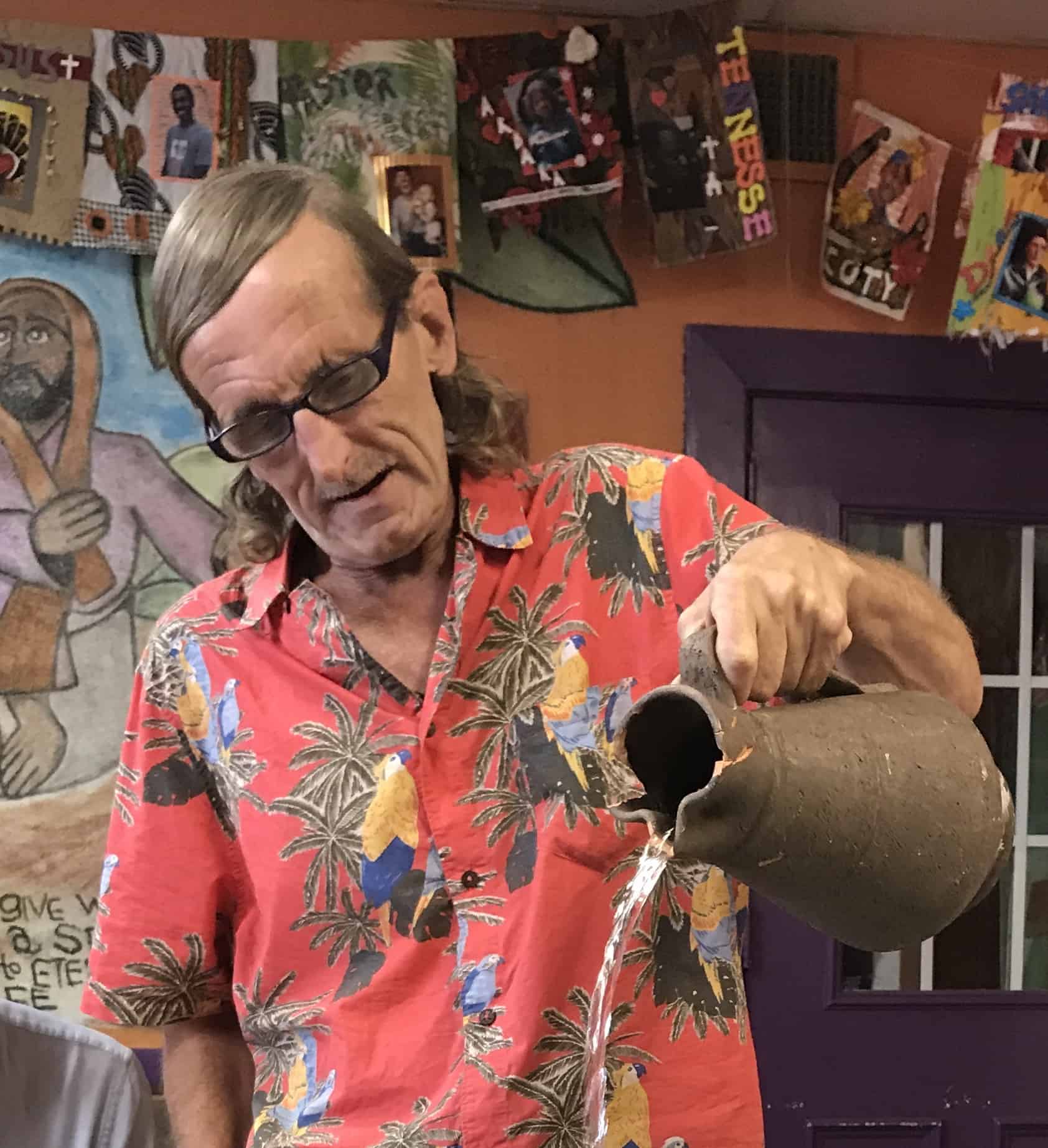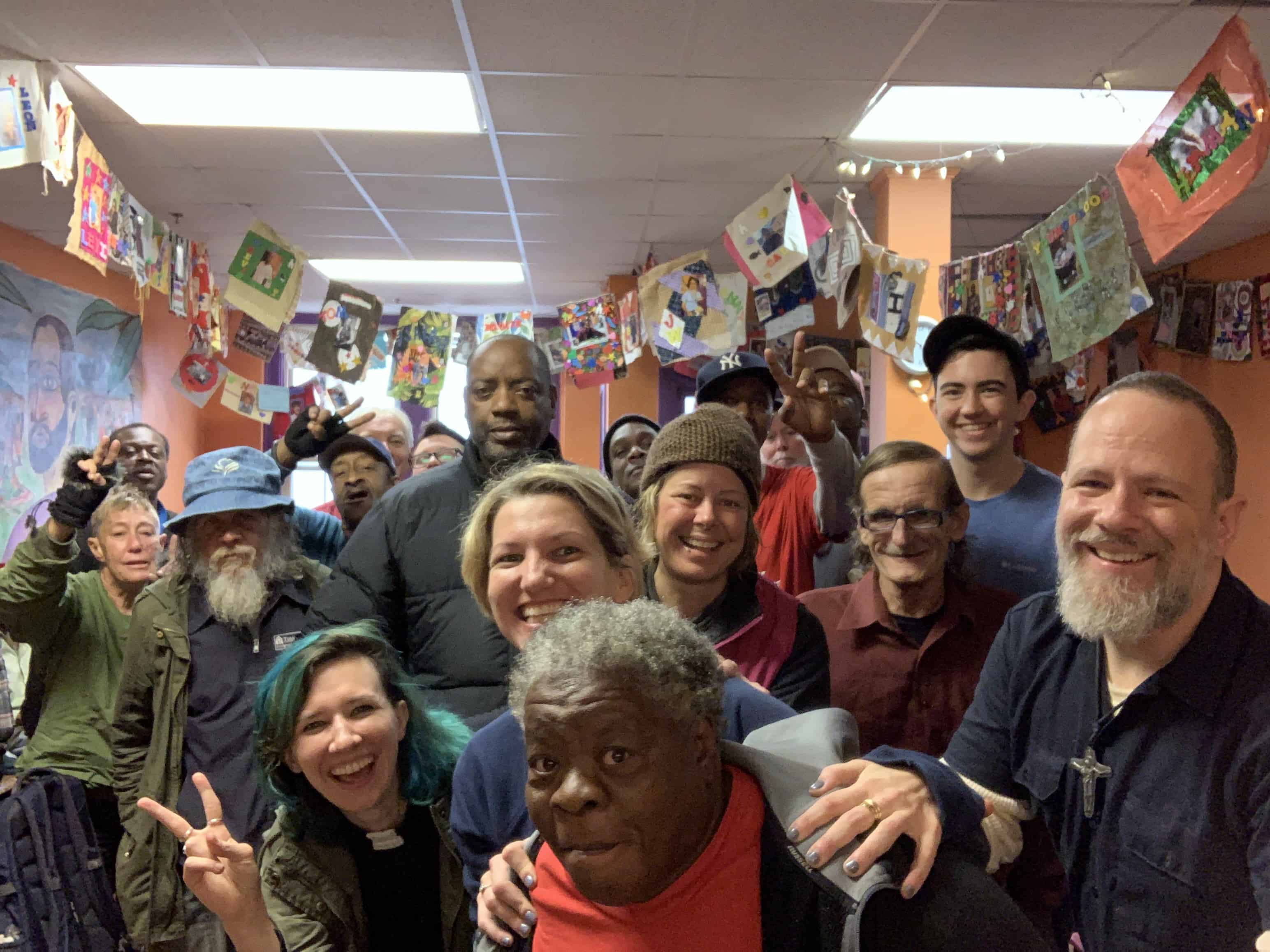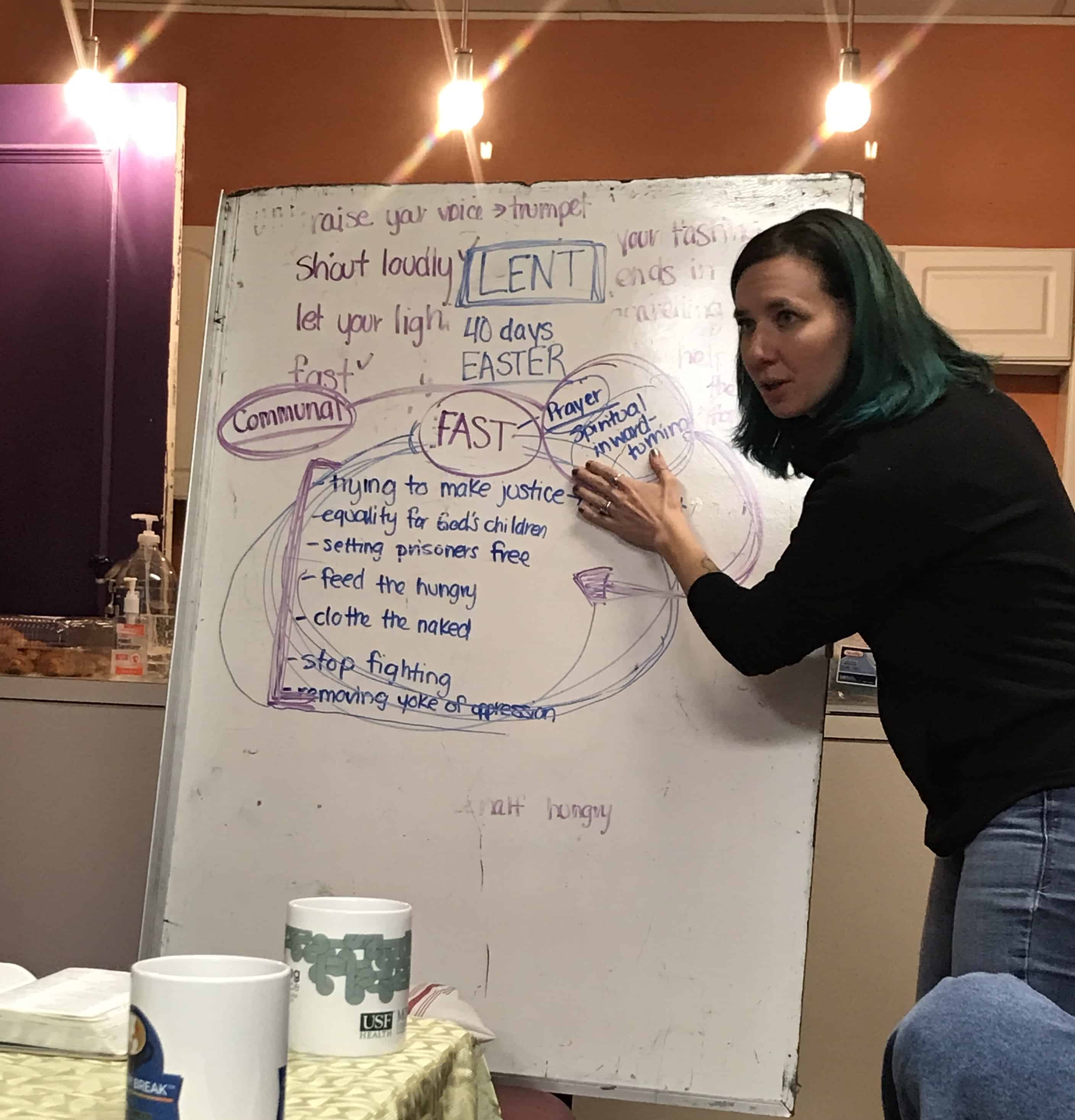By: Isaiah Lewis
Psalm 130
Reflection—v. 5 ‘I hope, LORD. My whole being hopes, and I wait for God’s promise.’
I have to admit, I have a contentious relationship with hope. There have been some points in my life when hope felt naïve at best and dangerous at worst. I assumed that anyone who was hopeful about the future simply wasn’t paying attention to the suffering of the human beings all around them. But I also worried that my feelings of hopelessness meant that I didn’t trust God, that I wasn’t faithful, and that maybe that meant God loved me less as a result. This psalm comforts me because its writer begins with not one, but two direct calls for God’s attention to their suffering. They invoke God by name—the LORD, the liberator and life-bringer and system disruptor—and say, ‘Hey, listen up. I need you!’ The psalmist knows all about trouble and knows God sees the mess that they’re in, including the ways in which they may have contributed to it. But they still trust God to listen to them, have mercy on them, and forgive them. And this is a pilgrimage song, which means that while they’re singing about needing God, they’re literally getting closer and closer to the holy place. I know that I need the loving attention of God to save me from the oppression I inflict on myself and other people. Most people do, I think. And my whole being hopes for God’s promise to us all.
Prayer Lord, come meet us in our hope
Thursday, April 2nd
By: Steve Smith
Romans 8:6-11
Reflection—v. 6 ‘to set the mind on the spirit is life and peace.’
The spirit is the way you feel like God is with you in your heart. The spirit guides you to be more heart-full–not harmful, but heart-full. Being spiritual is a very healthy way, I believe, to live. If God is working through you, you’re doing God’s work. For me personally, God working through me looks like God not letting me get into physical conflicts. I stay out of jail. I haven’t been to jail in seven years now, and that’s because I changed my point of view on a lot of things. I used to fight in Little Five Points every day. What changed is that I quit getting into fights. When I left the navy, I was a control freak—I always wanted to fight the meanest person around and I did. I went to jail several times. I had to change that. I worked to clear the garbage out—it was a trashy way of thinking. It was a dark spell, but with Christ you get that little light, and then the Holy Spirit grabs you, and you think ‘Whoa! That’s never happened before!’ But it happens a lot now. It’s almost like a 6th sense–where most people have five senses, God becomes your sixth sense. It’s not perfect perception, but the spirit is a kind of perception from God and it helps you to understand and get right in your life instead of walking and thinking in shadows. I think it’s good for our community to study this type of scripture because we can relate to what we might need to change. That way it’s not erroneous, and we’re more intelligent–it makes us a stronger community to be bonded in scripture.
Prayer God, guide us by your spirit to walk in your light!
Wednesday, April 1st
By: Maggie Leonard
Ezekial 37:1-14
Reflection—v. 10 ‘the breath entered them, they came to life and stood’
Breath prayer was an ancient spiritual practice of the church. One of the earliest of these prayers was known as the ‘Jesus Prayer,’ wherein early practitioners would repeat ‘Jesus, son of God, have Mercy on me’ in rhythm with their breath. At Mercy, Chad turned this phrase into a beautiful sung prayer. I typically think of breath prayers as shorter prayers, one or two words in length, thought in concert with each inhalation and exhalation. I find that praying in this way slows me down, helping me to focus and find calm. Interestingly enough, research has shown that changing our breath can also affect our nervous system. When we are stressed out, the sympathetic part of the nervous system is activated (think, the flight, fright, or freeze response) and we get stuck in this space with a faster heart rate and more elevated blood pressure. It is difficult for the brain to switch back to calm after experiencing stress. However, it has been shown that by taking long slow exhales, we can convince the brain that things are calm and peaceful, even in the midst of stressful circumstances. Long slow exhales can literally bring us calm and clarity. This is the place from which we can make good decisions. This is the place where it can become clear what we should stand for. God’s Holy Spirit fills us with breath and brings us clarity. Through prayer, may we discern this Lenten season where and with whom God’s infusion of love calls us to stand.
Prayer (take a deep breath and slowly exhale) Loving God, give us calm and clarity.
Tuesday, March 31
By: Maggie Leonard
Ezekiel 37:1-14
Reflection-v. 14 “I will plant you on fertile land, and you will know that I am the Lord’
As I think about this verse in the Lenten context, I am reminded of a poem by my favorite poet, Hafiz. Daniel Ladinsky translates it from Persian as follows – ‘What plant can grow if you keep lifting it from the soil? Let your roots expand unchecked into a forest, a river, a song, or some verse you hold tenderly. You need to become quiet for this, as roots work in silence beneath the earth’s silhouettes. Draw from souls all you ever could want above, below, and to the side, and within us, within us just love.’ Having the gifts of nutrients available isn’t enough, we have to do our part to receive them. This call to silence is probably the most difficult part for many of us. Last year for one of my classes, I had to devise an experiment on myself to change a habit. I decided that I wanted to walk my dog more often. I failed miserably. I realized that I failed because while I wanted to change my habit, I had not really done the work of changing my attitude and heart. Post-experiment, I worked to make these deeper changes and my dog walking habits did indeed shift as well. For many of us, we will have to actively seek to change our attitudes about taking time for silence – to really prioritize that time in our hearts. It is there that we will grow in depth, nurtured by God’s gifts of love – drawing it in from every direction. It’s in receiving this goodness that we truly start to understand and know who God is.
Prayer God of life, nurture us that we may ever grow deeper roots in love.
Monday, March 30
By: Maggie Leonard
Ezekiel 37:1-14
Reflection—v. 2 ‘they were very dry’
I have a confession for y’all. I kill plants. Especially house plants. I’ve even killed rosemary, which is basically impossible to kill. I don’t do it on purpose, it just comes naturally to me. I suspect they die because they are deprived of sunlight or water or new soil or a bigger pot… I’m never really sure. It’s probably mostly the watering though. I always know that it’s a bad sign when I try to water the plant and all the water trickles straight through the dry dirt. It’s like the dirt has been dry for so long that it has forgotten how to absorb water. At that point, it’s not necessarily a lost cause yet, but immediate attention is needed. It takes time, consistency, and patience to get the dirt to absorb water again. Pouring lots of water on it never works, on those occasions I end up with water all over the table. Instead, I have to drop ice cubes in the pot. As they melt slowly, the dirt has more time to soften and absorb. I think we can get like that too. If we deprive ourselves of God’s presence in the world, it doesn’t matter how much grace and mercy is poured upon us, we don’t absorb it. We can’t–not yet anyway. It takes time, consistency, and patience. Slowly but surely, as we attend to God we start to feel that love fill us again. Perhaps that’s one of the reasons why Lent is 40 days – if we haven’t been attentive to God’s presence, it will take some time to soften, absorb, and feel. It will happen though, have faith.
Prayer Patient and attentive God, soften our hearts that we may absorb your grace.
Sunday, March 29
By: Maggie Leonard
Ezekiel 37:1-14
Reflection—v. 9 ‘dead bodies’
Have you ever found yourself so busy that you forgot to eat? I am not one to forget to eat often–but every now and then, the momentum will carry me and I won’t know what time it is, much less that I haven’t eaten. Once I finally do slow down, or look at a clock, exhaustion and hunger hit. I’m tired, dead tired. Through the scriptures featured for this week, there is a theme of death. Real, full, smelly, dry death. I wonder if Ezekiel’s valley of bones knew that they weren’t living, even when the sinews and flesh appeared. Or if the Romans knew that selfishness was killing them and separating them from God. Or Lazarus? That one’s a doozy to begin with, I can’t even imagine what he was thinking. What seems clear, is that without God, without the Spirit, we aren’t truly living. A friend of mine recently took Benedictine vows. He lives at a little house of prayer in middle Georgia where the weary can find respite, prayer, and reflection on silent retreat. As we celebrated his decision, a fellow well-wisher reflected on the space that he, and his companions, hold for others. It is because they live a slow, prayer-filled, countercultural life that others can enter more deeply into the presence of God. Visitors take up the invitation to ‘be’ with God and are given the time and space to reset and reconnect with God. This Lenten season, may we have the awareness to see how weary we have become and have the courage to allow God to bring us to new life.
Prayer Living God, give us rest, give us nourishment, and bring us new life.
Saturday, March 28
By: David Swank
Psalm 23
Reflection—v .4 ‘I fear no evil, for you are with me’
I was in good health for a 61 year old man, or so I thought until 3 months ago when I suddenly became ill. I was forced to see a doctor at Grady where I was checked in as a patient. The doctors there had to run a bunch of tests for them to determine how sick I was. After the tests were done and the results were in, I had Pastor Chad with me, and the doctor informed us that I have colon cancer. It was Stage 4–which it doesn’t go any higher than that. I have three pastors who have been a real rock and salvation for me. I’m high on personal confidence–I truly feel that with God’s love and guidance, along with three loving pastors standing behind me, I truly do feel that I can overcome any life- threatening disease that Satan will throw at me. I also think my current armor of God is me, Pastor Holly, Pastor Brittany, and my helmet is my Senior Pastor Chad–he has helped me more than I could ever repay. Whatever happens in the end, I feel ready to meet my God, if that is God’s plan for me.
Prayer God, our rock and our salvation, protect us from all harm and surround us with your love and guidance when we need it the most.
Friday, March 27
By: Brittany Fiscus-van Rossum
Psalm 23
Reflection—v. 23 ‘…and I will dwell in the house of the Lord’
What does it mean to make someplace a home? This past fall my family and I purchased and moved into our first home, but oddly enough, my new residence isn’t the first place that comes to mind when I think of the home I’ve made here for myself and my family. I think of my community and how they have taught me to read the Bible in ways I couldn’t perceive before. I think of how the moment my daughter bursts into the room where we worship and eat together multiple voices shout out reminders about her peanut-allergy and stash nut products away so no harm comes to her. I think of the people with whom I can be angry and disappointed and joyful and silly and my whole beloved-broken self, knowing that there’s no judgment because they’re beloved and broken too and I am not alone. Being in community isn’t always so wistfully blissful, but it does remind me of what God desires for us: home. God desires for us, pursues for us, a place to rest our heads at night that offers shelter and security and the dignity we all deserve. But in addition to the physical shelter that is so essential, God also desires for each of us places of security where we know we can come and be ourselves, embraced for our full humanity, not told to move along, but told to sit and rest awhile because we belong here. The church can be that place—let’s make a home for one another right here.
Prayer Let us dwell with you, O Lord, and lead us into safe spaces where we can be ourselves and know that we are loved.
Thursday, March 26
By: Brittany Fiscus-van Rossum
John 9:1-41
Reflection—v. 34 ‘You were born entirely in sins… are you trying to teach us?’
Before they drive him out of the synagogue, the leaders balk at the audacity of the beggar-turned-prophet who outwits their persistent questions and offers to elucidate instead. They are trying to reason, question, logic-out, or even theologize what has happened to this once over-looked poor beggar who, along with the man who healed him, no longer fit into their limited paradigm of how God works. As this clever evangelist and a busy-at-work Jesus become progressively disruptive and unignorable, the leaders become increasingly unable (and perhaps unwilling) to accept and perceive the messy beauty of what’s transpired—that God-with-us wasn’t afraid to get down in the dirt and empower this prophet who can plainly speak for himself. The leaders bring up the man’s sinfulness, a convenient reason to discredit his voice and silence his experience. They grasp for any reason not to hear wisdom from a poor man they not-so-secretly wish had stayed in his lane. If one spends any time with our sacred text, it should be unsurprising that God’s voice so often speaks from the margins–from the mouths of the poor, the homeless, the disabled, and the neglected. Yet, do we give credence to these voices, or do we, like the grasping synagogue leaders, question what they could have to teach us? God is still busy out there on those streets. May we be open enough not to miss God’s handiwork in the stories and experiences of others.
Prayer God at work, help us to listen and to be willing to learn, especially from those we don’t expect to have something to teach us.
Psalm 121
By: Chad Hyatt
Reflection—v. 3 ‘the one who keeps you will not slumber’
The pastor didn’t sleep much that night. She was too alert to rest as she kept ‘watch o’er her flock,’ not unlike certain shepherds on a Christmas night long ago. But the sweet song of angels didn’t reward her vigilance. Instead, a chorus of antiphonal snoring and the persistent percussion of footsteps en route to the restroom announced the good news on this evening. For those nocturnal sounds could mean only one thing: her sleepless night had helped create the space for forty other souls to rest warm and safe—for one winter night at least. This psalm describes in tender detail the attentive care of our pastoral God, and hers is the image I call to mind. God isn’t asleep on the job. She’s watching over us, whether we’re sound asleep or wide awake, coming in or just about to head out. Our song, ‘Jesus Is a Sanctuary,’ explores this theme of a God who is the faithful refuge of her people. Singing it, we remind ourselves that God is indeed our our shelter and sanctuary. But we also remind ourselves that we are called to provide space for one another that is both sacred and safe. Jesus is indeed a sanctuary, but we are his body. As we ponder penance this Lent, let us repent of doors that are closed and sanctuaries that sit empty on cold nights, of pews and carpet that are unstained by human need, of policies and liability concerns that take the place of moral discernment and compassion. And let us give thanks, too, for churches like our partners’ that open their doors and for so many, like that pastor and countless other volunteers from many churches, who hear the call of the God who tenderly watches over her people, by day and by night.
Prayer God who never rests in your constant care for us, help us to care for one another always.

